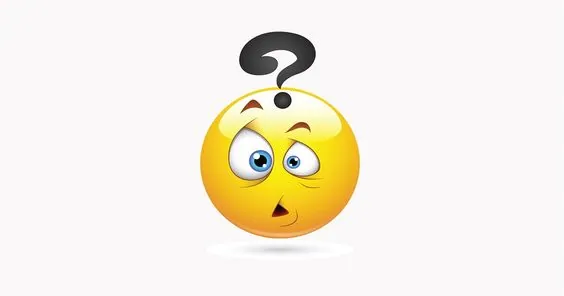Introduction to emojis and their meaning
Emojis have taken over the digital world, emojis and their meaning changing the way we communicate forever. Whether you’re texting a friend, commenting on social media, or even sending an email, emojis help add personality and clarity to our words. But have you ever wondered what certain emojis really mean? While some are straightforward, others have hidden or even double meanings that depend on context.
From simple smiley faces to complex symbols, emojis and their meaning emojis are more than just colorful icons on a screen. They convey emotions, set tones, and sometimes even replace words altogether. In this guide, we’ll explore the meaning behind the most popular emojis, their evolution, and how to use them effectively.
The History of Emojis: Where Did They Come From?
The Birth of Emojis
Emojis originated in Japan in the late 1990s, emojis and their meaning thanks to Shigetaka Kurita, who developed the first set for a mobile internet platform. Inspired by manga and street signs, these small pictographs were designed to add emotional context to text-based conversations. The word “emoji” itself combines “e” (picture) and “moji” (character), making it a fitting name for these expressive symbols.
The Rise of Emojis in Digital Communication
Fast forward to the 2010s, and emojis had emojis and their meaning spread worldwide. When Unicode adopted them in 2010, it ensured that emojis could be used across different platforms like iOS, Android, and Windows. This standardization allowed emojis to become a universal language, transcending barriers of spoken and written words.

The Evolution of Emojis
Emojis have grown significantly since their humble emojis and their meaning beginnings. Today, there are thousands of them, covering everything from facial expressions to animals, food, activities, and even professions. Unicode regularly updates the emoji library to reflect cultural changes and inclusivity, adding skin tone variations, gender-neutral options, and symbols representing different communities.
Popular Emojis and Their Meanings
Smiley Faces: More Than Just a Simple Smile
😊 Smiling Face with Smiling Eyes
This emoji represents genuine happiness and emojis and their meaning warmth. It’s often used in friendly or polite conversations to express gratitude, kindness, or approval.
😂 Face with Tears of Joy
One of the most popular emojis worldwide, this one represents uncontrollable laughter. Whether you’re reacting to a funny joke or something outrageous, it conveys amusement at its highest level.
🤔 Thinking Face
This emoji signals curiosity, confusion, or deep thought. emojis and their meaning It’s commonly used when questioning something or playfully doubting a statement.
Love and Romance: Saying “I Love You” Digitally
❤️ Red Heart
This is the ultimate symbol of love and affection. It can be romanticemojis and their meaning , but it’s also used in friendships and family relationships to show deep emotional connection.
💕 Two Hearts
Two hearts floating together represent a playful or lighthearted form of love, often used in a flirty or emojis and their meaning affectionate way.
💔 Broken Heart
As the opposite of the red heart, this emoji symbolizes sadness, heartbreak, or emotional pain, whether from a breakup, loss, or disappointment.
3. Hand Gestures: Expressing with Fingers
👍 Thumbs Up
This emoji means approval, agreement, or encouragement. It’s often used to acknowledge messages quickly without typing a full response.
👏 Clapping Hands
Used to express applause, appreciation, or congratulations, this emoji is great for celebrating achievements or supporting someone’s success.
🤞 Crossed Fingers
This emoji is commonly used to wish someone luck or express hope that something will turn out well.
4. Food and Drink: More Than Just Tasty Symbols
🍕 Pizza Slice
Often used to represent food cravings, love for pizza, or simply discussing meal plans, this emoji is a favorite among food lovers.
☕ Hot Beverage
Typically used to represent coffee, tea, or any warm drink, this emoji is perfect for morning greetings or cozy vibes.
🍷 Wine Glass
Whether you’re celebrating, relaxing, or just having a virtual toast, this emoji signals enjoyment and leisure.
5. Travel and Places: Exploring the World Digitally
✈️ Airplane
This emoji represents travel, vacations, or flights. It’s commonly used in posts about trips or upcoming adventures.
🏖️ Beach with Umbrella
Perfect for summer vibes, relaxation, or vacations, this emoji is often seen in travel posts or weekend getaway discussions.
🌍 Globe Showing Europe-Africa
Used to indicate travel, environmental awareness, or global perspectives, this emoji reminds us of the vastness of the world.
The Hidden Meanings of Emojis
Emojis with Double Meanings
Some emojis have taken on meanings beyond their original intent, often influenced by internet culture or slang. For example:
🍆 Eggplant and 🍑 Peach: While they represent vegetables and fruit, they are often used in flirty or suggestive contexts. 💯 Hundred Points: Originally meant to represent a perfect score, it’s now widely used to show strong agreement, enthusiasm, or emphasis. 🙃 Upside-Down Face: While it appears playful, this emoji is often used sarcastically or to express hidden frustration.
How to Use Emojis Effectively
Consider Context and Audience
Not everyone interprets emojis the same way. What’s playful among friends might seem unprofessional in a work email. Always consider who you’re communicating with before using emojis.
Avoid Overusing Emojis
While emojis can enhance a message, too many can clutter communication and make it hard to read. Use them to complement words rather than replace them entirely.
Stay Updated on New Emojis
Unicode releases new emojis regularly, reflecting societal changes and trends. Staying updated helps keep your digital communication fresh and relevant.
Conclusion:
Emojis have become an essential part of digital conversations, adding emotion, clarity, and fun to our messages. They’ve evolved from simple smileys to a vast and diverse language that transcends borders. Understanding their meanings and how to use them effectively can help you communicate better in the digital age.
So the next time you send a text, take a moment to consider which emoji best captures your emotions. After all, a single emoji can sometimes say more than words ever could! 🎉


